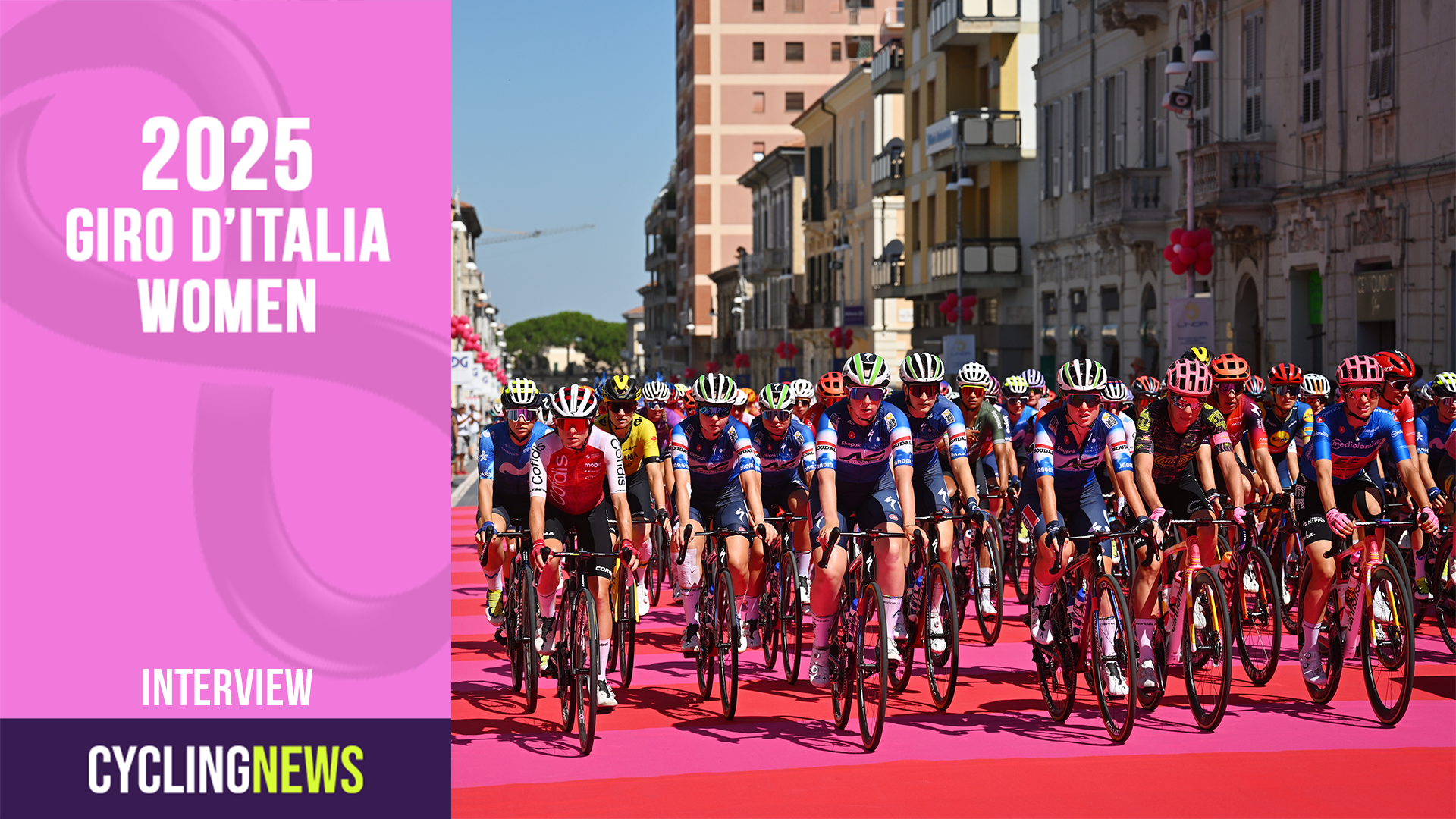
Giusy Virelli is having her final few meetings at the RCS Sport offices in Milan before taking her flight ahead of the big opening day of the men's Giro d'Italia in Albania in May.
For the RCS Sport events manager, this is the culmination of two years’ work, liaising with the local government officials and politicians, tourist offices, police, cycling federations and, of course, rider representatives to put in place all the logistics to ensure the safety and smooth running of the first Grand Tour of the year.
When I speak to her, Virelli is excited about this year’s edition of the men's event, though slightly torn by the timing. "I will have one ear on the football when we arrive in Tirana tonight. I would have loved to be in San Siro for the semi-final of the Champions League, but I will keep my fingers crossed that we can beat Barcelona."
Still, the naturalised Milanese is as passionate about her work as she is about her beloved Internazionale who eventually beat their Catalan rivals (only to spectacularly fall at the last hurdle in a 5-0 drubbing at the hands of Paris Saint Germain and finish the season trophyless – but let's not dwell on that!).
Virelli may not necessarily be a name on everyone’s lips, but she is the driving force behind some of the highest profile RCS Sport cycling brands – Strade Bianche, Milan-San Remo, Il Lombardia, Giro d'Italia, and since 2023, the Giro Next Gen (the U23 race), and Giro d'Italia Women – the most historic race on the women's racing calendar – for which she is the Race Director.
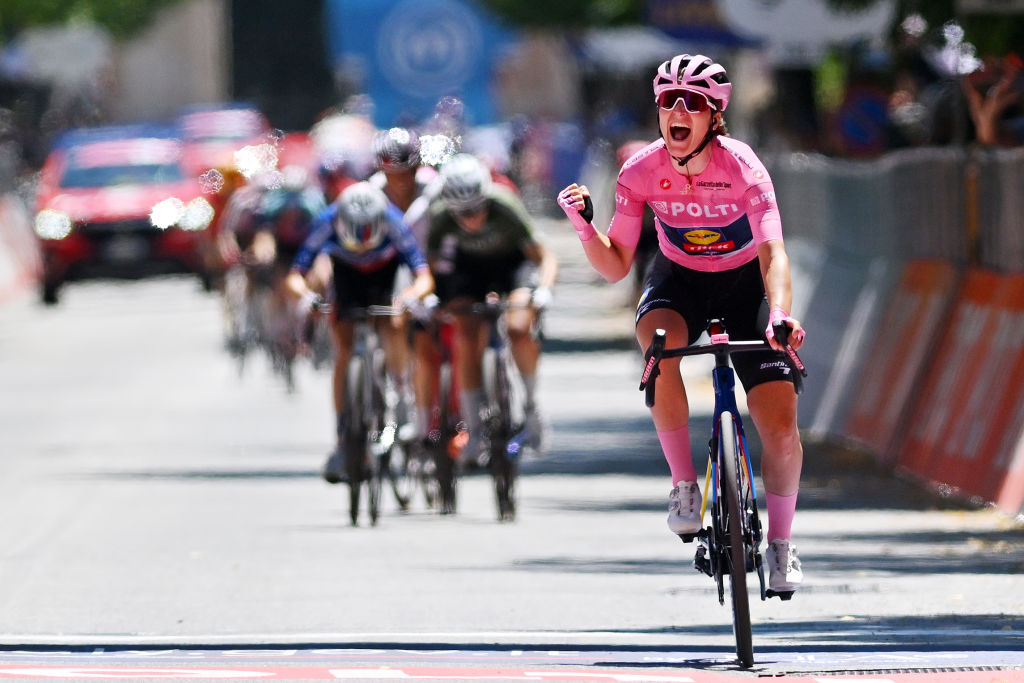
A women's Tour of Italy has been part of top-level women's racing since 1988. For many years, it was organised by Giuseppe Rivolta and has become a major target for the top racers.
The Italian Cycling Federation, who own the race, awarded RCS Sport a four-year contract to stage the event from 2024. For Giro d'Italia Director of Cycling, Mauro Vegni, it was logical to confer the role of Director of the Giro d'Italia Women to Virelli, given all her experience.
Having the Giro d'Italia Women under the RCS Sport umbrella is an exciting opportunity to start afresh, with a structure and organisation comparable to the men's version of the event. Although the Giro d'Italia Women happens on a different date from the Giro d'Italia, the event will still be televised on the same channels as the men's race, thus giving visibility to the event and greater investment.
"I am really happy to play my part in contributing towards the growth in women’s cycling and be involved in something that seemed utopic just a few years ago," said an excited Virelli.
Her pathway to cycling race director began in 2003, when the teenage Virelli moved from the 'toe' of Italy, the sun-kissed beaches of Calabria, up to the commercial metropolis of Milan where she attended one of the country's top business schools, Bocconi University and graduated with a Masters in Management and Economics of Arts, Culture and Communication. This led her to work for Il Sole 24 Ore, a leading media outlet in economics.
However, even at that time, she had her eye on working in the sporting domain.
"My dream was to work in sports management and, during my studies, I had the chance to do an internship with RCS Sport, working at the Milan Marathon, and that led me to join RCS Sport cycling department as an intern."
That was in 2009, and Virelli has stayed with the organisation ever since. The Bocconi graduate admits it was a steep learning curve in the early days as she was not au fait with professional cycling.
"When I started at RCS Sport, I was working on the cycling brands in the marketing department. It was completely new for me. I had done a bit of sport at High School and I have a gravel bike, and that’s about it. I came from a sporting family – by that I mean we all liked to watch a lot of sport on TV! No one did top-level sports or sports management."
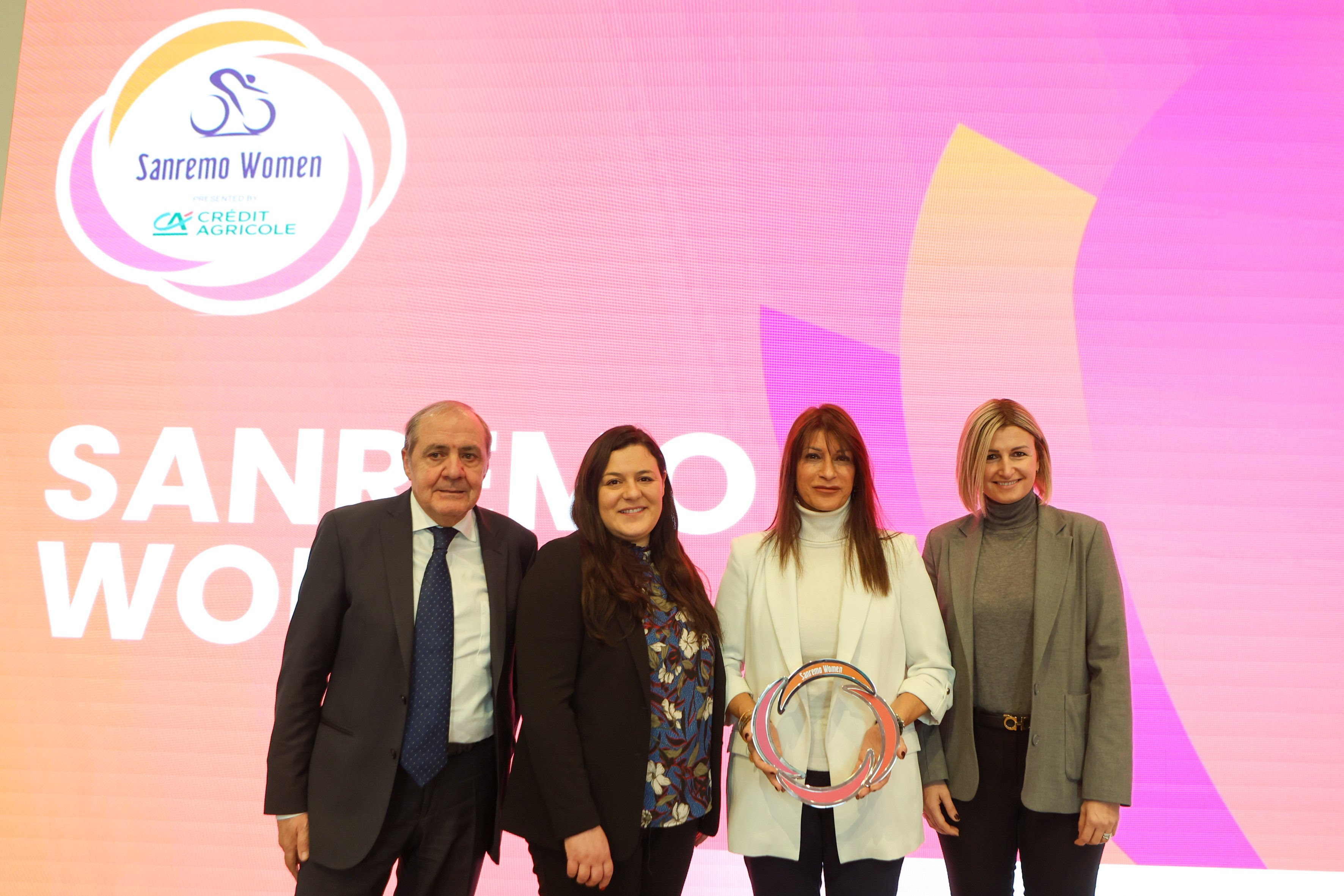
Virelli found sports marketing in cycling an exciting new area, and she wasn't fazed by being in a male-dominated environment. During that time, she took part in on-site inspections for the Giro d'Italia and learned about all aspects of organising races, leading her to be involved in Strade Bianche and Milan-San Remo and growing firmly into the role of Sport Manager from 2011.
She worked with local organising committees and took care of all the marketing activities and then later began to coordinate all the onsite inspections, commissioning and maintenance of the tasks carried out by the organising committees. This prepared her to become a project leader on the RCS Sport women’s events, starting with the Strade Bianche Women in 2015.
“I continue to work on the men's races like Strade Bianche and Milan-San Remo – from bidding by the local organising committee to the delivery of the race and post-race reports. So I have a 360-degree perspective of the staging of events.”
A highlight of this year has been the staging of the revived Milan-San Remo Women in March, which saw racers battling over the Cipressa and the Poggio at the Primavera Classica for the first time since 2005.
This race did not disappoint, and Virelli was very pleased with outcomes.
"I think it was a huge success. What I was impressed about was the crowds along the route. It wasn’t so obvious that people could come to see the women and then the men, because the races had a two-and-a-half-hour gap between them. But the roads were very crowded and there were a lot of people there just cheering the girls. The ladies did a great race right up to the end and the people watching it on TV had fun."
While some observers commented that the women’s race had stayed only on the coast, and could have been longer than 156km, Virelli believes that the format of the race was the best option considering the UCI rules on racing distances, the logistics and also the dynamics of the race.
“For sure, but there are regulation limits so women’s races can’t be over 160km. If you look at the men’s Milan-San Remo, the race is always decided mainly on Cipressa and the Poggio. Starting a women’s Milan-San Remo in Ovada, Alessandria would mean the racers going up the Passo Turchino at the very beginning of the race and I think that’s a bit useless and would ruin the race a bit. So I think starting in or around Genova worked well. So for the moment, I don’t think we’re going to change it.”
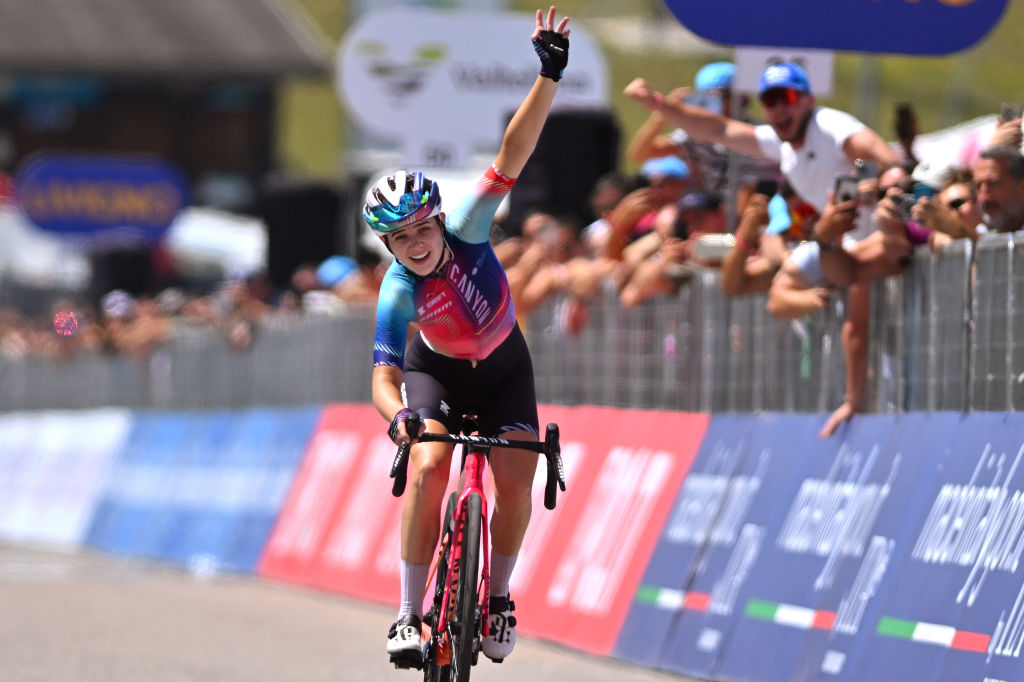
Also, the start of the race was symbolic in showcasing women, not just through this race, but also because the political representatives of the Liguria region and Genova are women.
Virelli is always keen to highlight women in many aspects of the races she organises. In the Giro d’Italia Women, the highest point of the race is known as the Cima Alfonsina Strada – named after the only woman to compete in the men’s Giro d’Italia.
Looking to this year’s Giro d’Italia Women, Virelli is hoping for a race that is just as dynamic as last year.
“Well, the Giro d’Italia is seen as the toughest race in the world’s most beautiful place, so we have to do the same for the Giro d’Italia Women! I have to be honest and say I did get into a cold sweat last year over the Passo Lanciano/Blockhaus stage because everyone was saying that including this would be too hard for the ladies and they wouldn’t even be able to reach the finish line. But in the end, I think it was great and the girls performed really well. So I am happy with my choice, and women have shown that they can take on tough challenges.
“This year will be more balanced than in previous years. There’s a chance for the sprinters in the first part of the race. Then we have our first uphill finish in Pianezze di Valdobbiadene in stage 4, and again in the last few days, including at Monte Nerone. Then the final stage will be at Imola on the course of the 2020 World Championships. So that will be a competitive stage where things could change.”
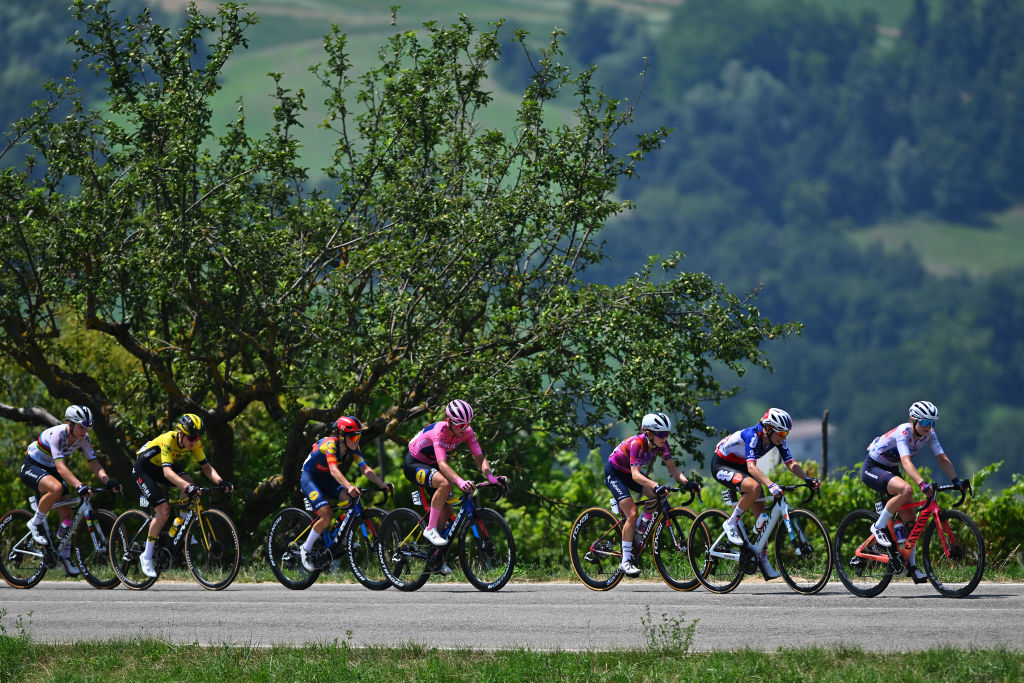
The Giro d’Italia Women cirector has already been planning the route for next year’s edition, which includes identifying start and finish host towns. Things to consider in the future may be having more stages than the eight in the current format, or starting abroad for the first time since 2015 in Ljubljana.
However, all these are to be taken into account in the context of upcoming UCI changes to the women’s calendar.
Just like there were calls for a women’s Milan-San Remo, the same chorus has been ringing out for a women’s Lombardia. However, RCS Sport don’t have any concrete plans for this yet.
“For sure, there will be interest from the fans, but we have to go step by step. We have started with Milan-San Remo, and then we will see.”
In between running organising races, the Calabrese still spends quality time with her three-year-old son. Although he loves riding his bicycle, it is not clear if he has the makings of a pro racer. However, he already has experience of being in a peloton.
“When we started the Giro d’Italia from Budapest in 2022, I was almost eight months pregnant with him, and I have pictures of him with Vincenzo Nibali and Alejandro Valverde at Il Lombardia that year. He comes with me to the races sometimes, so he is used to being with riders. So who knows?”
For now, Giusy Virelli is looking forward to seeing competitive women’s racing on the streets of Italy – and hopefully also some silverware for Inter Milan.
Subscribe to Cyclingnews for unlimited access to our Giro d'Italia Women coverage. Don't miss any of the breaking news, reports, and analysis from one of the biggest women's stage races of the season. Find out more.







